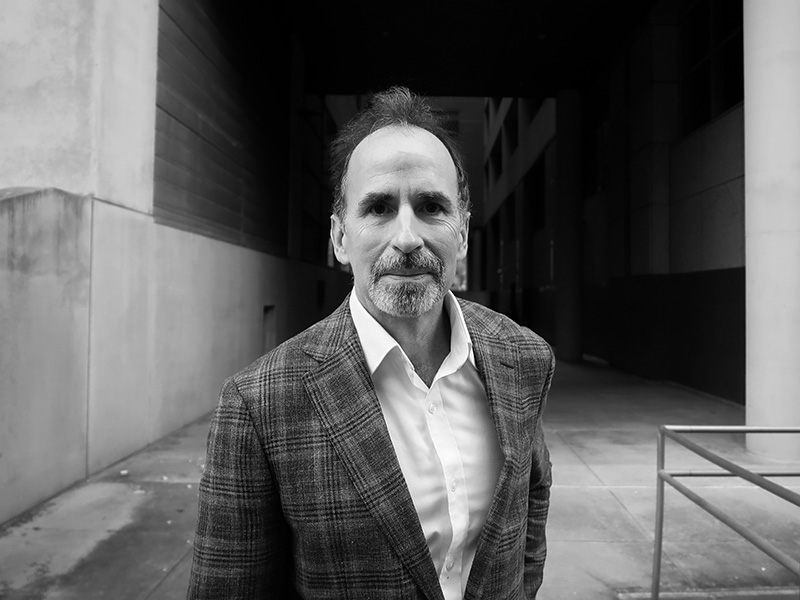Charles “Trey” Miller, PhD

Associate Dean for Hospital Quality Initiatives
Professor, Cardiothoracic and Vascular Surgery
Associate Vice President, Clinical Research and Health Care Quality
In March of 2020, then-Dean Barbara J. Stoll asked me to convene a workgroup to develop an organized research response to the coronavirus pandemic. Four areas were identified: 1) a cohort to enumerate and describe cases, 2) informatics, to describe medical record phenotype and assess potential risk factors, 3) an infrastructure for scientific review and prioritization of interventional clinical trials, and 4) a bio-repository for future translational research. Most of my effort has been focused on the clinical trial process in Houston and bringing West Texas and New Mexico sites into our Clinical and Transitional Science Awards (CTSA) network trials. We convened a workgroup to serve as the Pre-Institutional Review Board scientific review process that allowed for the vetting and prioritization of projects. IRB regulations are not structured to address prioritization of studies, and with four IRB panels that would have no way to know what the other panels were reviewing, centralized coordination and prioritization was required. Top-down processes usually don’t work very well in shared-governance academic environments, and UTHealth is highly distributed by design and institutional culture. But the occasion required a centralized process, and people understood the need for it and were generally supportive. Innovations included building a pre-IRB review process and expanding the clinical research footprint in the community. The investigators were highly collegial and creative – for instance, Dr. Ben Bobrow’s group opened trial sites at Memorial Hermann hospital facilities across the city that had never done trials. The CTSA workload has been enormous but highly productive. UTHealth’s network entities have been among the highest enrollers for NCATS (National Center for Advancing Translational Sciences network trials nationwide. UTHealth extended affiliations to North Texas, South Texas, and West Texas and built bridges with hard-hit Hispanic and Native American communities in the border region, West Texas, and New Mexico.
The pandemic put a hard stop to non-COVID-19 research in March 2020. By June, the hold was gradually released as PPE supplies stabilized and research groups worked with clinical areas to restart their projects. In contrast to the centralized process developed for COVID projects, accountability for re-engagement in non- COVID projects was placed with the research teams and their academic unit-level supervision. We required them to document processes, reach out if guidance was required, and retain process documentation in case of problems, but trust was placed with teams without a centralized prior approval process. This worked surprisingly well.
“Crisis has a way of creating focus and stripping the normal chaos down to the essentials.”
The CCTS KL2 training grant project, which provides support to faculty conducting clinical or translational research, was severely disrupted. A 4-5 month enrollment hiatus for projects that have only 24 months of funding is a significant hit to productivity. Realistically, many projects were set back 6 months to a year because until vaccines were widely available, many patients avoided health care settings for non-emergency problems. We are currently working with the NIH to extend KL2 appointments for the most severely affected research projects. Classes and seminars moved online like everything else. There have been pluses and minuses. Pluses include improved attendance because people can Zoom from anywhere, even when on-service, which might have prevented in-person attendance in normal times. Minuses are that it is much harder to read the room online and more introverted students may not participate very much in the discussion-resistant online format. Online teaching is great for delivering content one-way but not great for group discussion. We have experimented with small-group breakout sessions, but these have been of variable value and are highly facilitator-dependent.
The IRB also has moved completely online. This has required a change in workflow (especially for counting votes) since discussion is not as spontaneous.
I expect teaching and committee functions will likely remain in some hybrid format – in person and online – for the foreseeable future. The trick will be to keep the good parts and not the parts that enable micromanaging (which is where human nature tends to lead managerial decision- making). As the environment evolves back to increasingly in-person interaction, I expect a lot of meeting spaces to be upgraded with respect to their teleconferencing capability as some fraction of participation seems certain to be virtual for years to come, if not permanently.
Personally, I learned to work from a lot of different places, and I learned to hate the laptop less and appreciate VPN more. I have also prioritized staying physically active throughout this time and have been making do with minimal home gym equipment. At some level, my workout consistency has been improved by having more control over my work location. I have also learned to cook more with enhanced efficiency and have probably improved my nutrition as a consequence of minimal dining out. Thank God for Instacart, which has changed my life.
Overall, collegiality has been strong, and I have been impressed and honestly kind of moved by the ability of people to cooperate and develop innovative solutions. The past year has reinforced my faith in the ability of our university community to rise to the occasion and put common goals ahead of personal ones.
Crisis has a way of creating focus and stripping the normal chaos down to the essentials. Some things you should manage centrally (COVID clinical research), and some things you should leave with the teams and academic units (non- COVID clinical research). Knowing when to do which is as much art as science and adaptability and pilot testing when possible are crucial in getting the balance right (or as right as you can get it on average – there are always going to be outliers that require special-case solutions).
